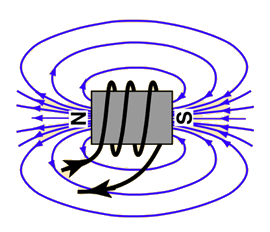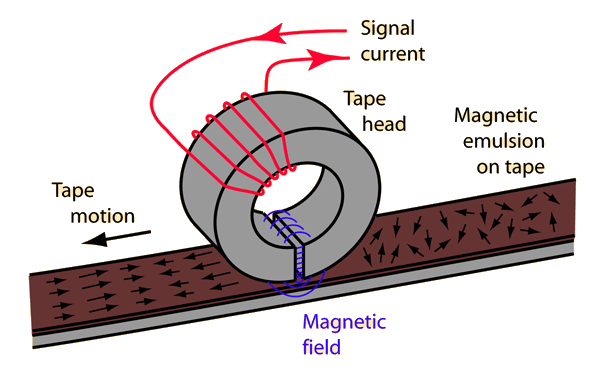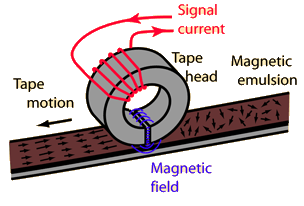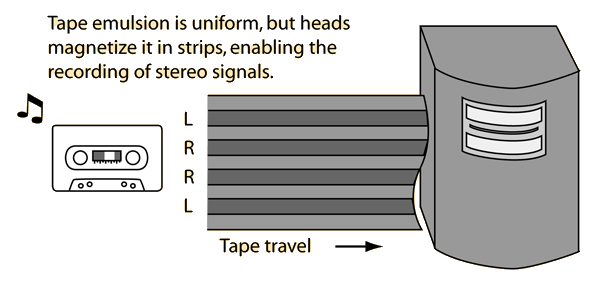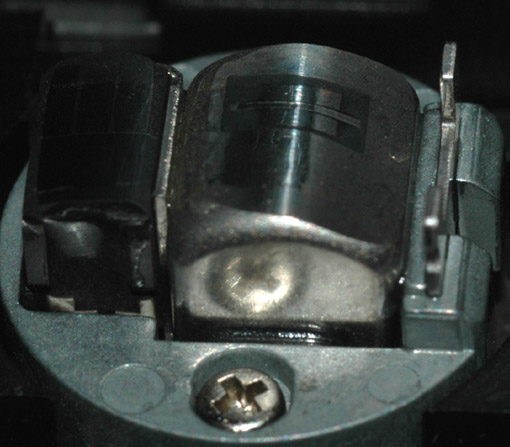Magnetic Emulsions
The recording medium for the tape recording process is typically made by embedding tiny magnetic oxide particles in a plastic binder on a polyester film tape. Iron oxide has been the most widely used oxide, leading to the common statement that we record on a "ribbon of rust". But chromium oxide and metal particles provide a better signal-to-noise ratio and a wider dynamic range. The oxide particles are on the order of 0.5 micrometers in size and the polyester tape backing may be as thin as 0.5 mil (.01 mm). The oxide particles themselves do not move during recording. Rather their magnetic domains are reoriented by the magnetic field from the tape head.
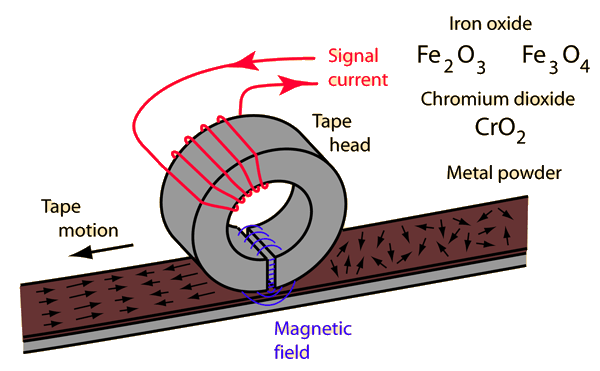
Tape heads for stereo cassette tapes must record on two tracks simultaneously.
|
Index
Sound reproduction concepts
Tape recording concepts
Reference
Rossing
Science of Sound
Ch 21 |
